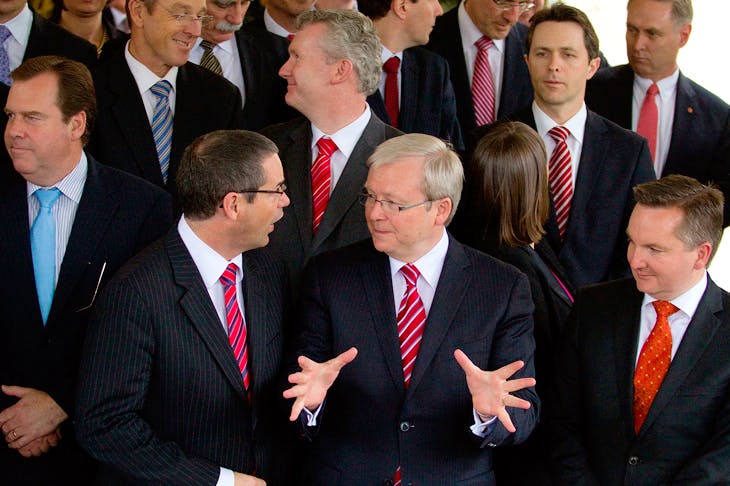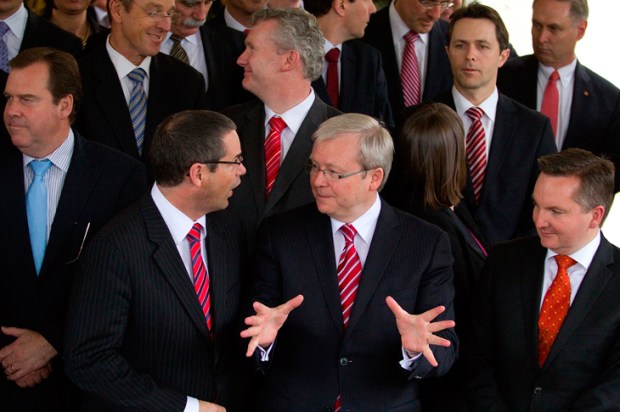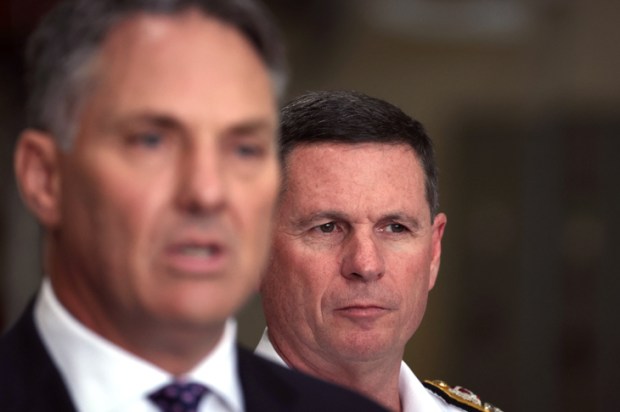The impending retirement of ABC chairman, Jim Spigelman, presents Malcolm Turnbull with an ideal opportunity to shake up the country’s public broadcasting sector.
For instance, Turnbull could take the bold step of making Spigelman’s replacement not just chairman of the ABC but also of the SBS, in a move to rationalise the two publicly-funded broadcasters. Currently, the SBS chairman’s seat is vacant and has been so since the sudden resignation of Nihal Gupta in February last year. This led to Dr Bulent Hass Dellal being appointed acting chairman. Gupta’s term was due to run until October this year but the appointment of an overall public broadcasting chairman would immediately remove the necessity of appointing a separate chairman of SBS.
Expressions of interest from potential ABC chairmen closed on Jan 27 with a decision to be announced in March.
As an ethnic broadcaster, SBS lost its reason for being years ago. The multi-cultural appeal of community and ethnic broadcasting in the late 1970s – when the SBS was created by Malcolm Fraser – has faded with rapid changes in Australian society and also technology, along with the growth of pay-TV.
The large ethnic groups which were the target of Fraser’s immigration settlement initiative have been replaced by their English-speaking, Australian-born children who are very much at home with the new technologies.
What to do with SBS has been a sleeper for prime ministers of both political persuasions since then. Bob Hawke was convinced something had to be done and his government announced its intention to amalgamate the two organisations. But it had to back off after sustained attack from ethnic community groups and the Democrats who then held the balance of power in the Senate.
In 2008 at PM Kevin Rudd’s meeting of the minds summit, SBS management floated the idea of rationalising its transmission and distribution backroom functions with the ABC as a cost saving and streamlining mechanism, but that was about as far as it went.
Labor Communications Minister, Stephen Conroy, initiated a review of the national broadcasters but instead of drilling down on cost duplication and waste this quickly swung its focus to transparency in board appointments. Not surprisingly, despite a lot of high-sounding comments about independence and stopping political interference, the prime minister was left with the final say on these – a situation that still exists. Meanwhile, Conroy’s senior media policy adviser, Emma Dawson, had compiled a scathing assessment of SBS’s management and its ability to survive in the face of growing media competition.
Against this sort of background it is hard to believe that the Finance Department has not had an ‘SBSexit’ file in its bottom drawer for some time just waiting for a window of political opportunity.
Apart from anything else, Turnbull’s factional leanings probably put him in the best position of any recent prime minister to resolve the SBS dilemma, as the erstwhile darling of the ABC. It is unlikely he’d get the kind of response that would have greeted any such move by Howard or Abbott. With Pauline Hanson, he has more sympathetic Senators to deal with.
Nevertheless it would be a political gamble and would require the sort of gutsy decision making that Turnbull has so far eschewed. But he has economic logic on his side at a time when his Government is trying to find ways to cut back unnecessary spending. The current triennial budget agreement for the national broadcasters, introduced last year, provides around $270m annually for the SBS.
Of course it should not be assumed that SBS and its friends would take it lying down, but their clout has diminished significantly over the years. The development of World Movies as a pseudo ( some might say not so pseudo) porn channel and the launch of SBS Viceland as a commercial substitute for its SBS 2 channel may well have provided its opponents with the straws to finally break its back.
Bringing SBS/ABC control under the one umbrella would have to spell the end of SBS’s commercial existence. There is no way that Turnbull would have any hope of pulling off this plan unless this involved, at the very least, a phasing out of SBS advertising. But any fall off in revenue would be more than offset by savings achieved through a rationalisation of resources with the ABC, including bringing Sydney staff together in the ABC’s Ultimo headquarters and the consequent sale of SBS’s base in Artarmon.
Initiating this move with the effective appointment of a public broadcasting overlord, would come on the heels of the appointment of Michelle Guthrie as ABC managing director (someone who is believed to have the ear of the Prime Minister). One could only assume that if a joint chairman were appointed it would only be a matter of time before there would be a joint chief executive. Meanwhile, it would also coincide with a yet to be concluded government review of media policy which directly affects the free-to-air and pay-TV sectors.
In the dying days of the Gillard Government, parliament endorsed a law which is still on the books banning the creation of a fourth free-to-air commercial network. But the free-to-airs have never been comfortable with SBS’s advertising capability and would welcome anything that put an end to any possible expansion of this. This could be the catalyst to bring about a workable solution to the interminable brawl between Foxtel and the free-to-airs over anti-syphoning rules which govern sports programming.
Another issue that should be taken into account in any overhaul of public broadcasting is the fact that everything is now transmitted digitally – in fact there is no shortage of digital spectrum. So in a transition period the ABC, for example, could convert ABC2, which is a mishmash of programming, into a ‘best of SBS’.
The end result would be a more powerful, single public broadcaster with a triennial budget of more than $3.1b, which, handled properly, would be more efficient and able to focus on delivering more quality and Australian-made programming,
The free-to-airs, which have always struggled to find a viable budget for their news and current affairs rating anchors, might even be tempted to take some of their news feeds from this new ABC’s vast resources to trim their own overheads.
Got something to add? Join the discussion and comment below.
Get 10 issues for just $10
Subscribe to The Spectator Australia today for the next 10 magazine issues, plus full online access, for just $10.














Comments
Don't miss out
Join the conversation with other Spectator Australia readers. Subscribe to leave a comment.
SUBSCRIBEAlready a subscriber? Log in